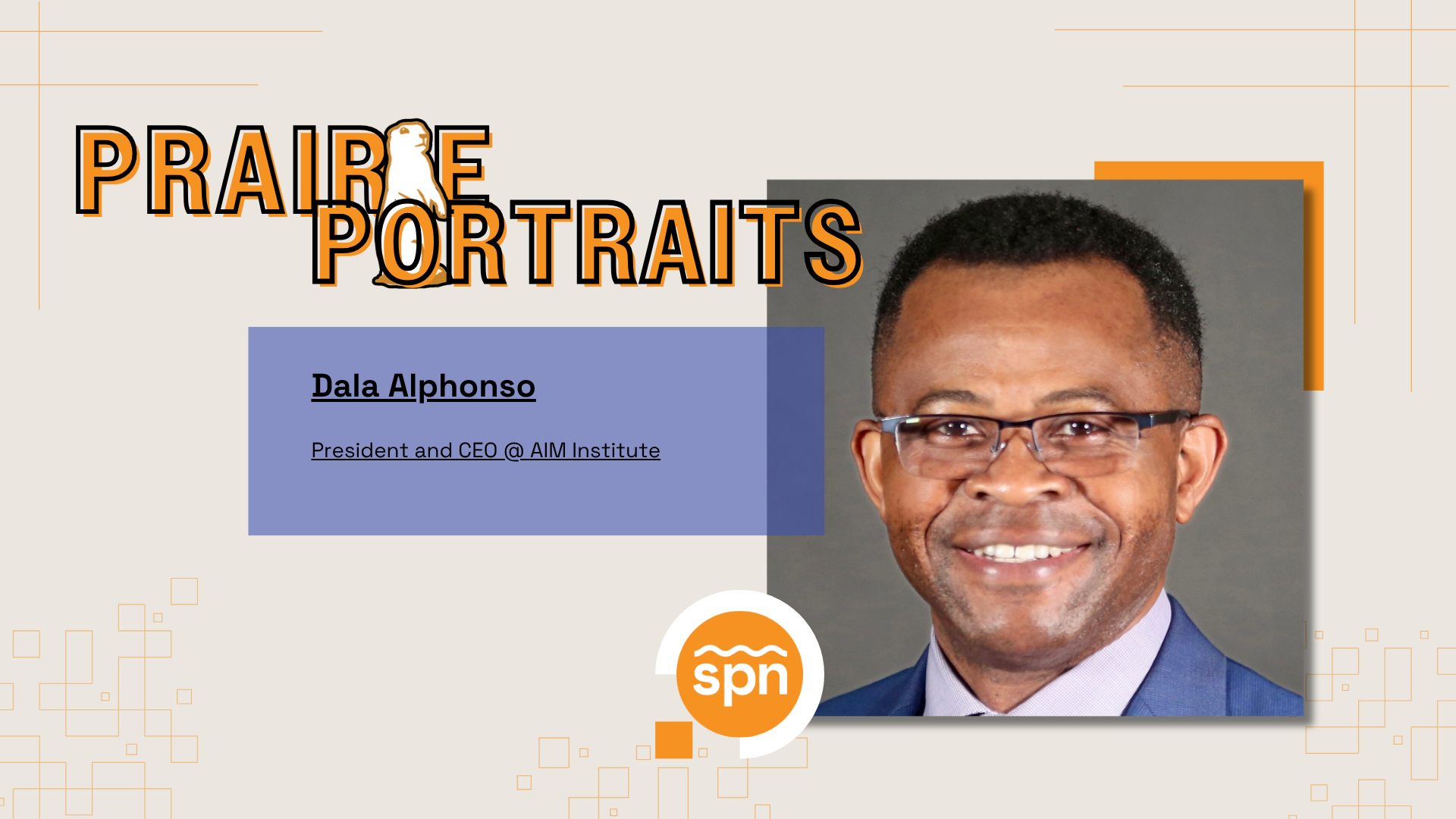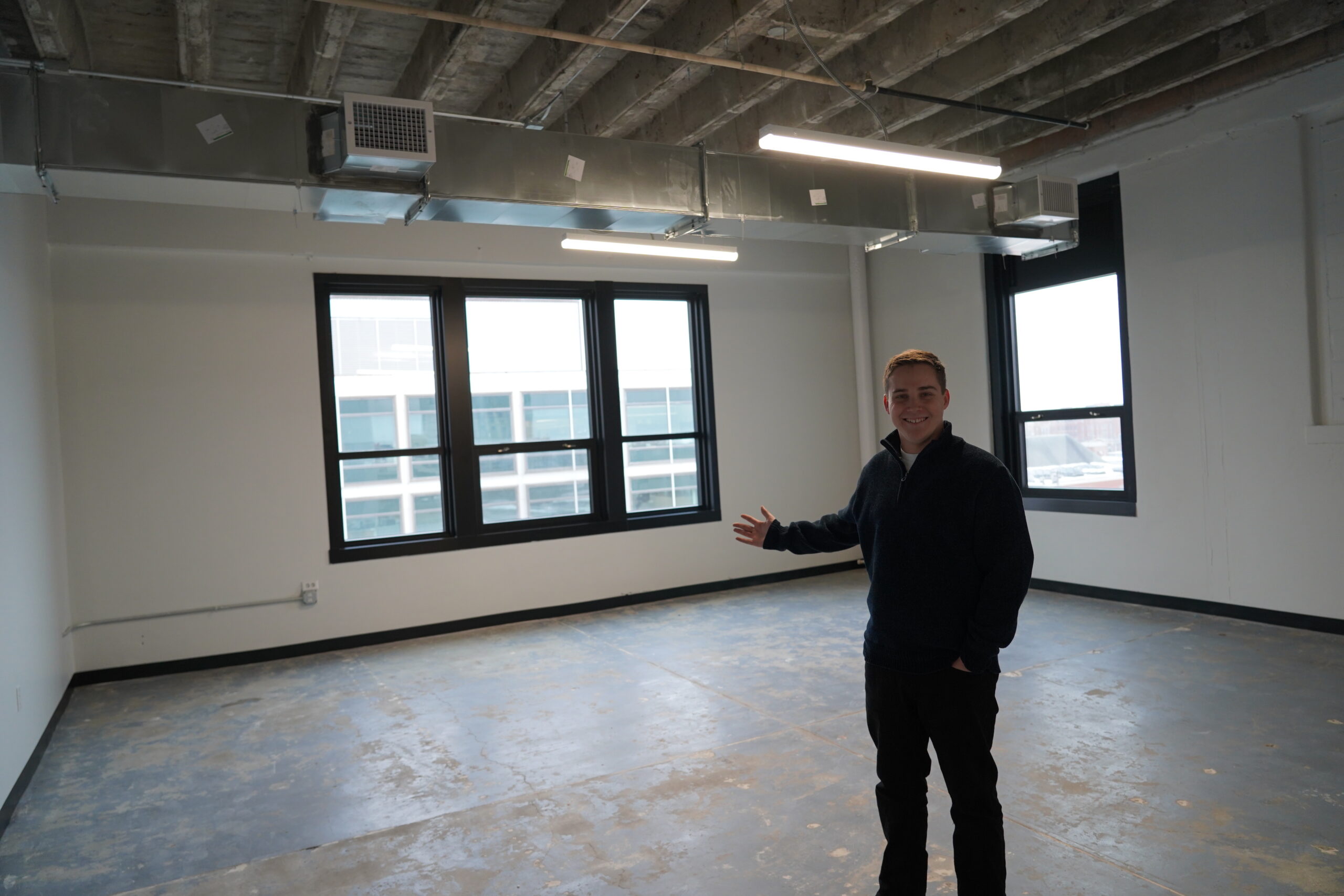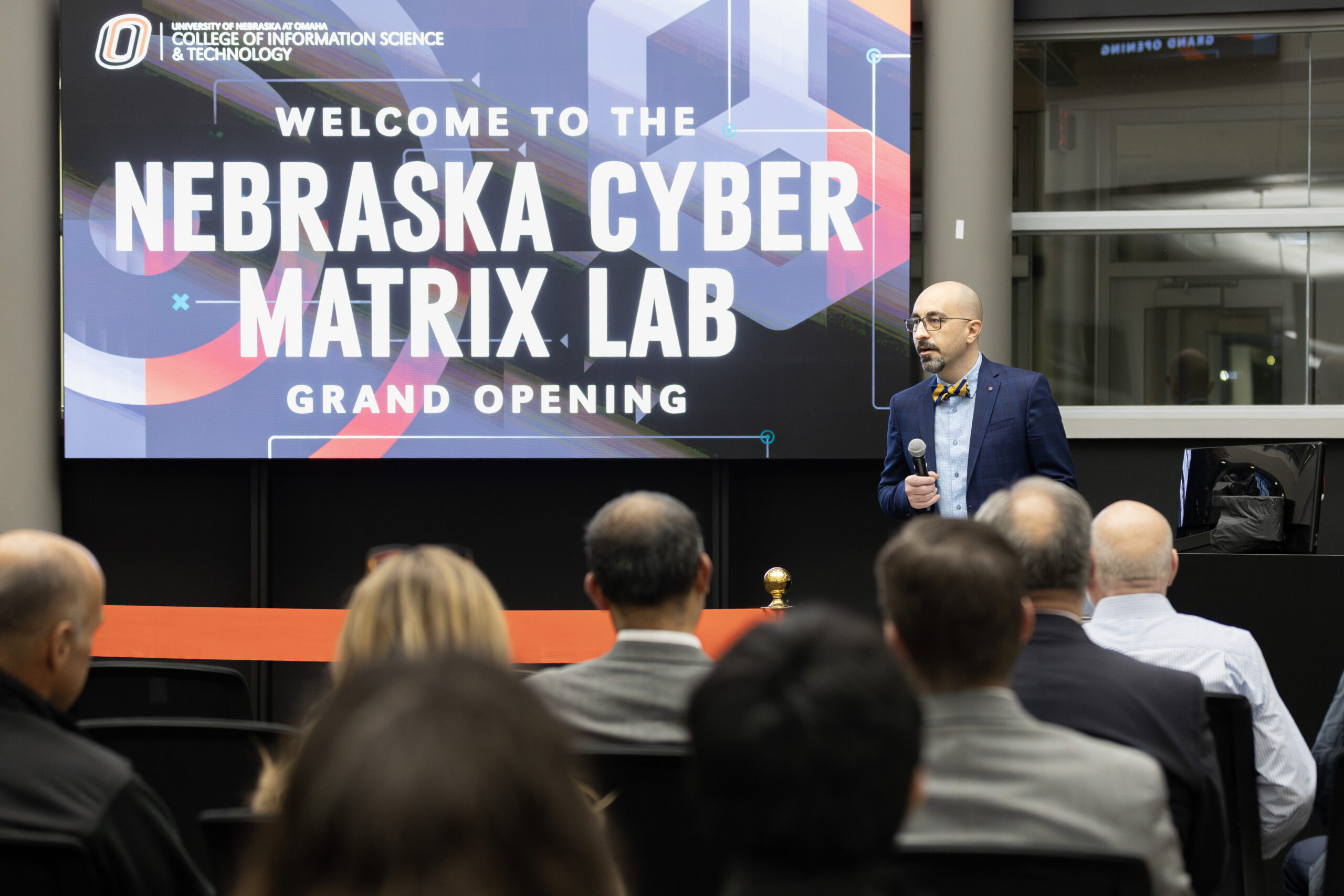Meet Dala Alphonso, President and CEO @ AIM Institute
AIM is an Omaha-based nonprofit organization that seeks to grow the region’s tech sector through education and career training programs, outreach and events.
What inspired you to become an entrepreneur or support other entrepreneurs?
I think the whole journey of entrepreneurship has to do with my background. Growing up in Africa where there weren’t jobs in the market, you pretty much go through college and you come out and you can’t find a job. So the only way you can actually make ends meet was for you to create something — start a business.
Growing up, I watched my mom and my dad pretty much hustle and run different types of businesses. The whole idea behind it was really to put food on the table because the salaries or wages that we were getting were just not enough to take care of me and my siblings.
I understand from my own journey that being an entrepreneur also means that I can create a future for my children and for the people within my ecosystem.
Today, I’m blessed and fortunate to be the CEO of AIM, but I run it as a business. Even when I was working in larger organizations with specific responsibilities, I often operated as what’s called an “intrapreneur” — acting as an entrepreneur within a corporate setting.
I’ve always run every function, every business, every unit that I’ve been responsible for as a business with its own mission that aligns with the overall strategy and objectives of the organization. That has been consistent for me. I believe that once people approach business that way, chances of creativity, innovation, transformation — all these things that are critical to the success of business — will always just come naturally.
What advice would you give yourself if you could go back in time to when you were just starting out?
Take more risks, but be calculated and be intentional about it. Be willing to fail and fail fast, learn from it, pick myself up and move forward. If I had been a little bit more aggressive with pursuing some of the ideas and the aspirations that I had, I strongly believe that I would have accomplished a lot of the things that I am just reaching to now.
And just realizing that I can’t be everything to everyone.
I can’t boil the ocean, but I can make an impact on where it really matters.
I spent a substantial part of my younger life trying to fit in or trying to please people or being careful not to draw outside of the box. There were ideas and things that I was passionate about back in the day. But when you start out, somebody says, “No, this is not good for you. This is not who you are.” And I chose to put it on the shelf or toss it out.
Then looking back now, 10, 20, 30 years later, I wish I took that on and ran with it. I could have been in a whole different place. So, believe in yourself.
How do you stay motivated when things feel overwhelming — or stagnant?
Stagnation is not my nature. I have come to a point of understanding who I am, what inspires me, what motivates me, and stagnation is not part of it. I am not the guy who likes to just keep things status quo. I’m always thinking about what’s next. I’m always thinking bigger.
I am somebody who likes to leave things better than I found them. Five years from now, people are going to look at AIM and wonder what happened because we have a bold, big vision. Stagnation is not an option.
How do I stay motivated? I am somebody who’s ever learning. I’m reading, I’m asking questions, I’m inquisitive by nature. I like to improve things. I like things to be better. I like efficiency. It’s just how I roll. It’s just how I’m wired.
When I feel like I am not as inspired as I used to be, I always take the time to withdraw. I will go on a quick vacation. I go out of town. I just disconnect from everything so that I can have time to rethink, to recharge, get rejuvenated and then reconnect back to work.
What is the biggest challenge you’ve overcome and how did you overcome it?
The biggest challenge that I would say I’ve overcome in my life would be cancer. I had a very huge aspiration, which was that I wanted to become super wealthy. It was all about making money, becoming significant, having influence. And I was really working hard toward that.
In 1996, I was fortunate to have survived a plane crash, which altered the direction of my life. But I came out of that accident without a single scratch, and that positioned me to start really valuing life. As scary as that was, I believe my faith was one of the biggest drivers that helped me overcome that challenge at that point and has been consistent as part of my journey.
In 2014, I got diagnosed with cancer and was literally given, if I did nothing about it, five years tops. Coming from the doctor’s office and being told that you have cancer and that you probably have five years, it’s a very scary place to be at. I was 43 going on 44. Basically what I’m being told here is that I wouldn’t even get to see my 50th birthday.
Well, guess what? I’m 54 now.
I remember the first couple of nights after that whole ordeal I couldn’t sleep. Couldn’t eat. I couldn’t think. Couldn’t function. I couldn’t do nothing. I was useless. I was a vegetable.
At that point, I realized that the worry about the ailment itself would kill me faster than the disease. I had to ask myself: Why worry about something that worrying wouldn’t change? And so I made a decision that I was going to stop worrying about it — and that was that. I was going to live my best five years.
I came to the realization that every one of us, as scary as it sounds, has to face the end of life at some point.
That experience is part of what has made me the leader that I am today because I began to understand the value of life, the importance of treating people better than I want to be treated.
How can the Nebraska community support you?
Support the AIM Institute and its vision of truly becoming the technology workforce epicenter here in Nebraska and Omaha.
We have a vision today to create an ecosystem that does not only train and develop technology talent but attracts and retains as well.
We can’t do this by ourselves, but we can do it in partnership, in synergy, in collaboration with other organizations that have the same passion as we do.
We’re looking to build a technology hub where people can come and collaborate and mentor and work together. I came to AIM for one reason because the vision of the organization provides the possibilities for me to accomplish the three things I am passionate about: technology, entrepreneurship and people development.
And so if anybody is thinking about how best to support me, support AIM.



